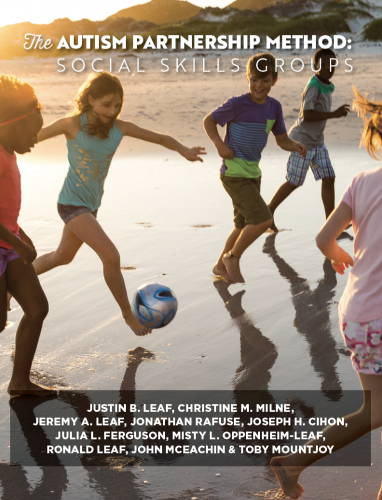The Autism Partnership Method:
Social Skills Groups
The purpose of this book is to provide an overview of the Autism Partnership Method for designing and conducting behaviorally based social skills groups for individuals diagnosed with Autism SpectrumDisorder.
The book is divided into three sections: 1) Introductory Information, 2) Running Behaviorally Based Social Skills Groups, and 3) Curriculum. Within the first section the reader will find overviews ofApplied Behavior Analysis, social behavior, Autism Spectrum Disorder, the Autism Partnership Method,and research evaluating the use of social skills groups. The second section provides the reader with direction in developing, running, and evaluating their own social skills group. Finally, section three provides an extensive curriculum, with detailed programs and goals, for running a behaviorally based social skills group.
“I cannot imagine that any practice would want to run social skills programming without the benefit of this amazing book. It is extraordinarily comprehensive and sophisticated, yet written in a language that is easy to read and understand. It contains a wealth of practical materials, as well as the philosophical underpinnings for how to use them and why. I love the real-world examples of intervention that is overly protocol-driven. Leaf and company challenge all levels of ABA practitioner to ask “what’s the point?” of any given exercise and “what are we trying to accomplish?” Autism families should hope that their loved ones have the benefit of social skills programming informed by this book.”
Lorri Shealy Unumb, J.D. CEO, The Council of Autism Service Providers
“This new book from Autism Partnership offers an excellent blending of theoretical, research-based and practical advice for designing important lessons within group contexts for individuals with ASD aimed at promoting and expanding social skills. The book provides a consistent model coupled with explicit lesson recommendations dealing with a broad array of social skills that are of particular relevance to school-aged learners.”
Andy Bondy, Ph.D. Pyramid Global Partners

